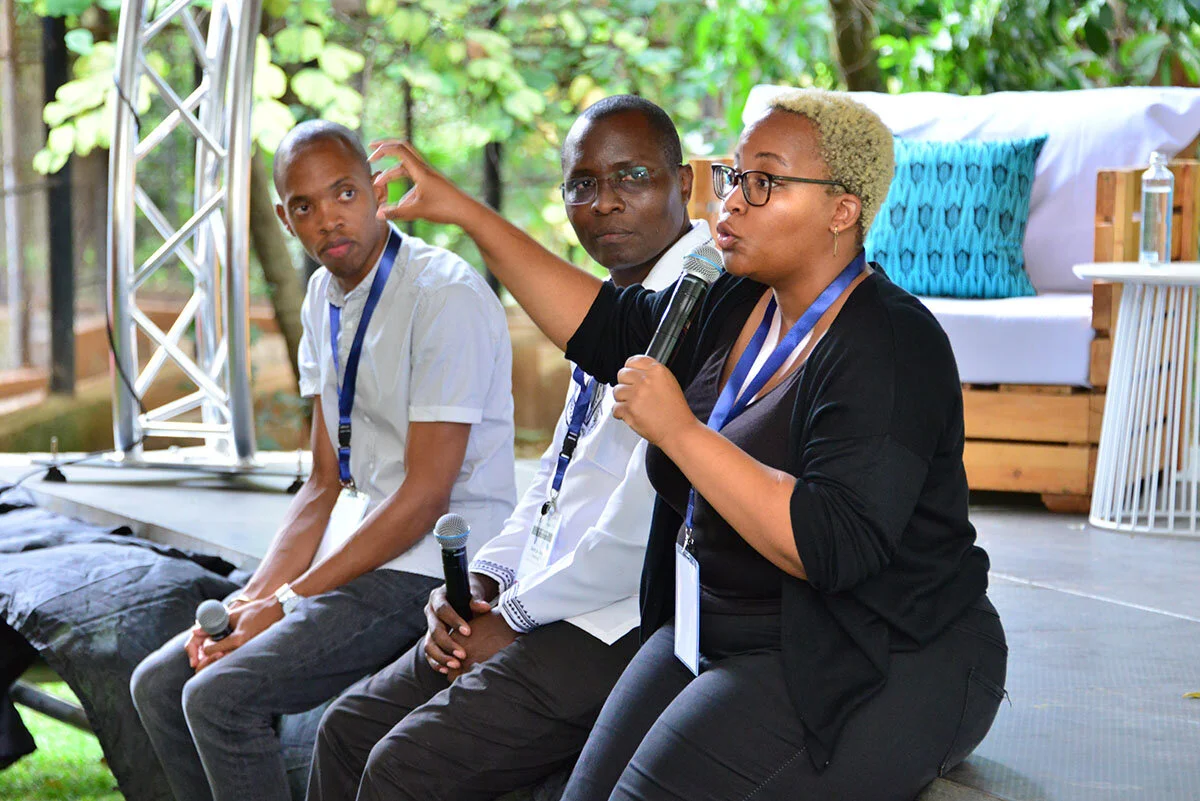The International Inventories Programme (IIP)—A Research and Curatorial Partnership
Lead artists: Jim Chuchu, Njoki Ngumi. Programme roles: public debate curation and moderation, database visualization, artistic curation and production, database administration, data entry and translation, technical advisory, communication strategy and web deploymentThe International Inventories Programme (IIP) is an artistic, research and curatorial project that investigates Kenyan objects held in cultural institutions outside of Kenya. Beginning in 2018 with the support of the Goethe-Institut, the programme brings together a constellation of cultural entities, including the National Museums of Kenya (NMK) in Nairobi; the Rautenstrauch-Joest Museum (RJM) in Cologne; the Weltkulturen Museum in Frankfurt; SHIFT, an art/research collective (Germany/France), alongside ourselves.
The explicit intention and question of IIP is how to make objects which currently reside in institutions within the global North present again in contemporary Kenya. The wider project seeks to develop a database of these objects, which will be made public for Kenyans to engage with. To do this, IIP wrote and continues to write several letters of inquiry to different museums around the world. Many of them have been forthcoming with lists of their objects and available provenance data, which shows to whatever available degree the object’s journey from its point of origin—and custodians—has been represented in available records.
The IIP group during a workshop at the Rautenstrauch-Joest Museum in Cologne.
Njoki Ngumi and Jim Chuchu run a workshop on object movement in Nairobi, alongside Juma Ondeng’ from the National Museums of Kenya
Our particular interest as a collective in the IIP project is three-fold:
IIP is an artistic exploration and a compelling project because we recognize that while there are some tangible parts of our history that have vanished because they were violently taken away, it may be possible to uncover and shed light on where they are now and how they moved. Kenyans were dispossesed of objects of cultural and national importance during the colonial period. These objects were taken because they were either politically or culturally strategic to the colonial project as part of defeat and demoralisation of our people, or because they were economically valuable. The Continent has had ongoing conversations to push for fair and true acknowledgement of the true impact of colonialism, which is central to our work in the black and African identities we embrace.
It is also an opportunity for essential cultural conversations with people who come from nations which were former colonizers, which provide an opportunity to honestly interrogate the violently imposed power dynamics between our nations and peoples, and also broaden the discussion towards righting the many wrongs done and find a way forward to a new way of relating culturally, that is more transparent and aware of reality and of the bridges that need building. The German partners of the IIP project have been key in this regard.
This project has also given us the opportunity to understand museums a little bit better: engage with their processes behind the scenes and understand why the object movement process is moving as slowly as it is on their front. Museums and cultural practitioners have traditionally had hierarchical relationships skewed in favour of the institutions, but in this project, we work at being able to come together as partners who are able to listen to one another. Additionally, IIP are working to put together a database of a corpus of Kenyan objects abroad informed by the data that museums have shared with us, which will eventually be in the custody of the National Museums of Kenya. We hope that this will create a doorway to scholarship, research, articles and narratives all built on access to these objects that nobody knew were Kenyan and so far away, but which can start them on a whole new life cycle in the lives of the people now in contact with them. This will evolve more understanding of our country and its peoples with more detailed histories and wider, more expansive identities.
The IIP team visit the storage vaults of the Rautenstrauch-Joest Museum in Cologne.
The project also incorporates Object Movement Dialogues, a public forum that allows for debate and discussion into matters of cultural heritage, provenance, the current significance ascribed to these objects, and restitution, amongst others, and is also collating data about Kenyan cultural objects into a database. We are also working on 2021 public art exhibitions that will be hosted in IIP partner institutions the National Museums of Kenya (Nairobi), the Weltkulturen Museum (Frankfurt) and the Rautenstruch-Joest Museum (Cologne). Visit inventoriesprogramme.org for more updates on the project.
Overview of the IIP database statistics as at 14th May 2020: see the latest updates at inventoriesprogramme.org





